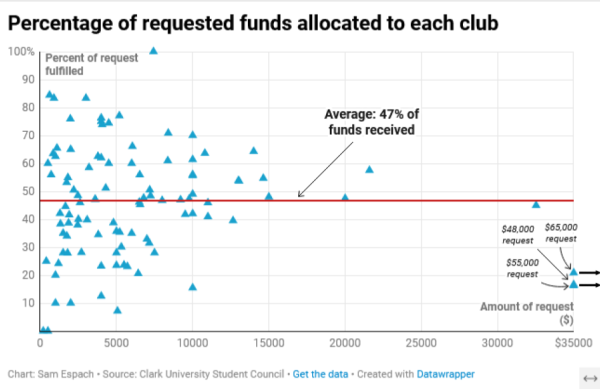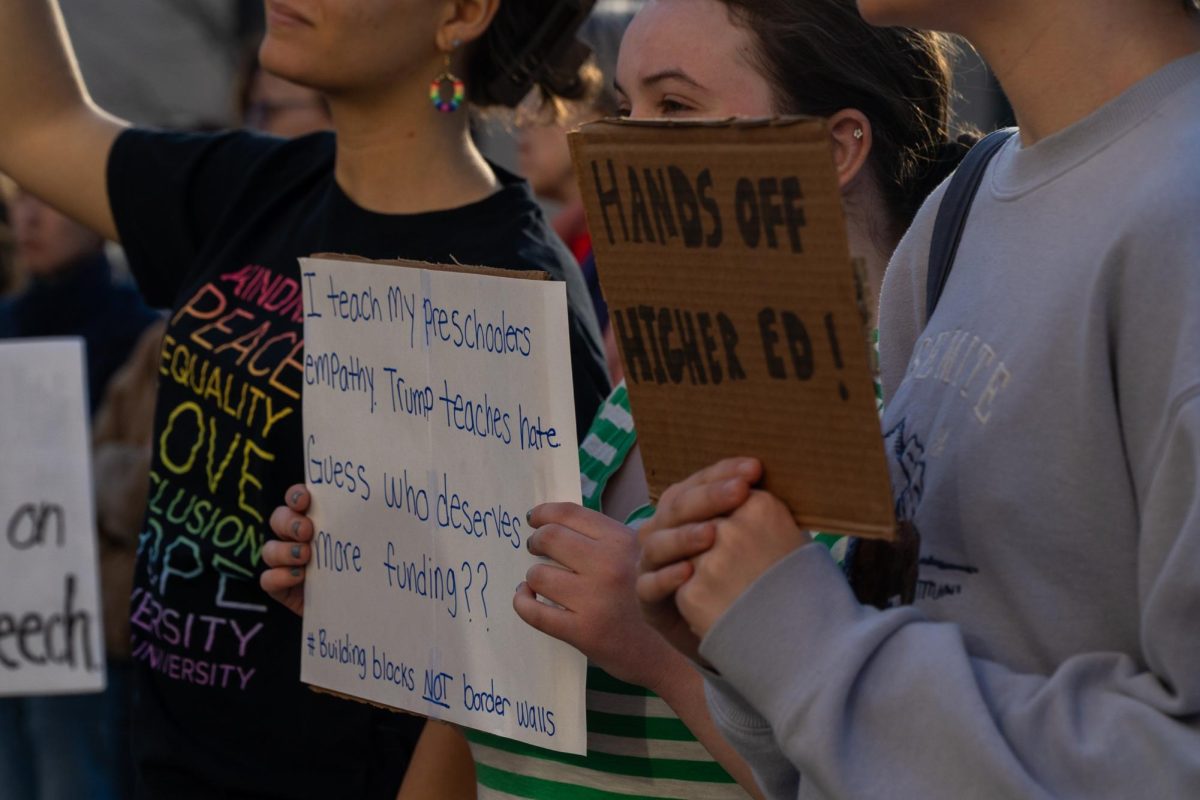As the only elected governing body on campus, the Clark Undergraduate Student Council (CUSC) fulfills an important role within the university. CUSC serves as a liaison to the administration for the University’s undergraduates, plans campus events like Halloweekend and Spree Day, and allocates all the money going to every club on campus based on the clubs’ total requested budgets.
This year, CUSC fulfilled only about 47 percent, on average, of each club’s annual requested budget. Two clubs got no money at all, and only one out of a hundred received its full request.

So why is almost every club getting the short end of the stick? The biggest reason has to do with budget requests. Clubs had a combined request total of $711,757 this spring, a 31 percent increase from the combined total of $541,631 last year. CUSC Treasurer Kelechi Akabuogu attributes this to more clubs taking the effort to apply for CUSC funding than in previous years.
“We just had way more turnout, we had 109 clubs apply, last year we had 97,” she said.
Additionally, many clubs increased their budget requests this spring, contributing to the increase. Some faced special circumstances after their budget was dramatically altered. For example, the InterVarsity Christian Fellowship, which usually gets money from the University, received no such money this year and thus ended up requesting almost $50,000 from CUSC. In another case, Clark University Rapid Response (CURR) leadership doubled their requested budget to $55,000 after they realized they had no medical dispatcher, among other factors.
In the end, neither InterVarsity nor CURR received over $10,000.
Not only did clubs request more, but CUSC received $90,000 less from the Clark administration than in the Spring of 2024. Last year, the Council’s Finance Committee had $800,000 to work with; this year, it was projected to receive only $710,000.
According to an email from Dean Kamala Kiem, CUSC’s funding is based on a percentage of the revenue from Clark’s student activity fee each year, making it highly dependent on the number of enrolled students. The more students, the more fee revenue and thus the more money going to CUSC.
However, this does not mean the Class of 2029 will be smaller than that of 2028. The $710,000 figure was just the administration’s estimate of how much CUSC will receive next year. According to Kiem, CUSC only got such a low estimate because the administration is estimating conservatively, on the off chance they might promise CUSC more than they could fulfill. (With this logic, it follows that clubs can expect a lucrative pool for mid-year distribution, but we just will have to wait and see.)
Meanwhile, CUSC had to make some tough decisions with limited money. The Council was not allowed to cut much from many of its funds: Its bylaws mandate it to allocate 35 percent of its money to campus programming and $155,000 to grants, logistics and student support. Therefore, councilors cut the remaining $57,000 from the only thing they could: student clubs and organizations.
To anticipate the budget shortfall, CUSC implemented strict demands on clubs this year. Each club was required to present a full audit of its budget to the finance committee, which asked them about their mission, attendance, expenses, challenges and history with underspending, among other questions. There was a hot debate over many topics, especially whether the Council should fund things like off-campus events. Finally, after 13 hours of deliberations over two days, CUSC finally came up with a budget.
Inevitably, almost every club was unhappy.
CUSC did its best to allocate equitably, but with the money it had, it was impossible to make everyone happy. “You’re probably not going to get your full budget request, just because there’s 99 other clubs we have to account for,” said Akabuogu.



